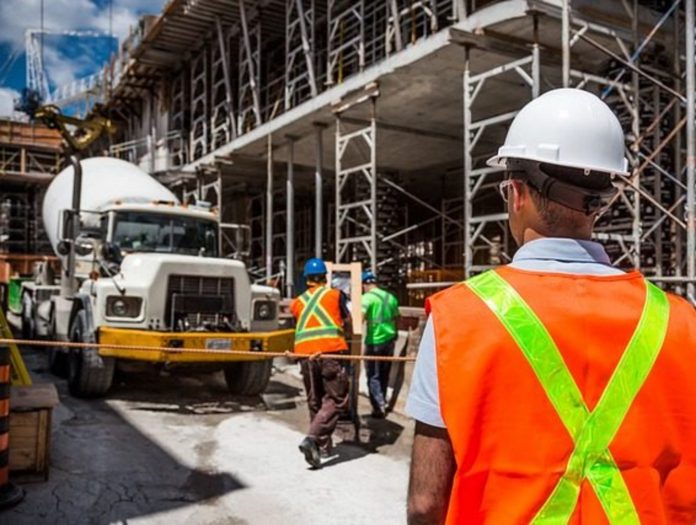What Do Construction Managers Do?
Apartments, schools, bridges, highways, airports, and sports arenas are a few examples of construction projects you will find everywhere you look. Behind each complex project is a qualified construction manager. The individual is responsible for ensuring the project is completed smoothly and on time.
Construction managers oversee the building and construction projects, from blueprints to ribbon cutting. You must find the answers to what a construction manager does if you aspire to become one. This knowledge ensures you understand if this is the right career path.
An Overview
As a construction manager, you are responsible for the practical management of each stage of the construction project. The job involves ensuring the job is completed safely, on time, and within the set budget. Further, you would be required to oversee work schedules and delegate tasks to the team.
What a Construction Manager Does
The scope of the manager’s responsibilities encompasses everything from planning the project to evaluating the final construction. Their expertise lies in construction technical aspects, leadership, and team coordination.
According to the Construction Management Association of America (CMAA), the role comes with these six main areas of responsibility.
1. Managing the Project
The main objective of any construction manager is to get the project started. Next, they oversee the entire process until completion.
For example, you have a project to construct an apartment building. The first steps are conceiving the project and ways to actualize it. Other steps include managing the funds and materials used in the construction and hiring the right people.
Once prepared, you monitor the progress and create reports until the final stage. Project management also involves monitoring the team’s tasks and overseeing they meet the required construction standards.
2. Cost Management
A construction manager should have a detailed budget that can help prevent delays caused by insufficient materials or labor. While planning for everything is expected, the manager usually has a miscellaneous budget to cover unexpected costs.
Construction budgets include hard costs for physical materials and services such as:
- Site excavation and preparation
- Plumbing
- Electrical and mechanical costs
- Labor
- Equipment
Soft costs worth considering in the budget include:
- Site fees such as for land, surveys, permits, and environmental compliance measures
- Legal, design, and management fees
- Insurance
- Financing
- Interest
- Taxes
3. Managing Project Time to Completion
Time is a critical factor for project owners, lenders, architects, contractors, and all other stakeholders in a project. A construction manager should set a realistic timeline for each project phase and have a mitigation plan ready in case of delays.
The construction manager should understand the applicable building codes to keep to the timeline. For instance, specific environmental restrictions might limit the type of HVAC system one can install in an apartment building.
Understanding these codes and standards provides the know-how required for informed decision planning and ensures the project is on track.
4. Ensuring Construction Quality
Ensuring construction quality is paramount for a construction manager because it directly impacts the project’s success and longevity.
Other reasons for setting up quality controls at every stage of the construction include:
- The construction manager can guarantee high-quality construction materials and workmanship that reduce the need for costly repairs or replacements over time
- Investing in quality construction upfront to minimize the risk of rework or legal disputes while maximizing the overall return on investment
- Ensuring the project meets regulatory requirements and industry standards while improving the construction manager’s reputation for integrity, reliability, and professionalism
- The final product meets or exceeds client expectations, which helps enhance their trust and satisfaction in the construction industry
5. Contract Administration
A construction manager also makes sure contracts match the expected final product. Contract administration enables the manager to document answers to questions that involve:
- Evaluating and choosing contractors
- Assigning specific contractors the responsibility of directing and approving specific construction components
- Regular contractor monitoring and reporting
- Identifying the types of inspections carried out
- Overlooking how each contractor is paid and audited
- Managing of records such as correspondence and contracts
6. Safety Management
Worker safety is a high priority for any construction manager. Safety guidelines in the workplace help protect the well-being of employees, stakeholders, and the public.
The manager ensures these guidelines help mitigate accidents, injuries, and fatalities at the construction site. Further, compliance with safety regulations safeguards the construction company’s reputation and legal standing.
The Takeaway
The job of a construction manager is multi-faceted as they need to handle multiple tasks daily. These tasks include communicating with engineers, the construction crew, and others. A manager must ensure all stakeholders are in the loop and coordinate efforts towards project completion.
For this to happen, the construction manager should be eligible for the position before applying. They should have a degree in construction management or a related discipline, such as civil engineering. These managers also require extensive management, business, law, regulations, planning, theory, and design training.



